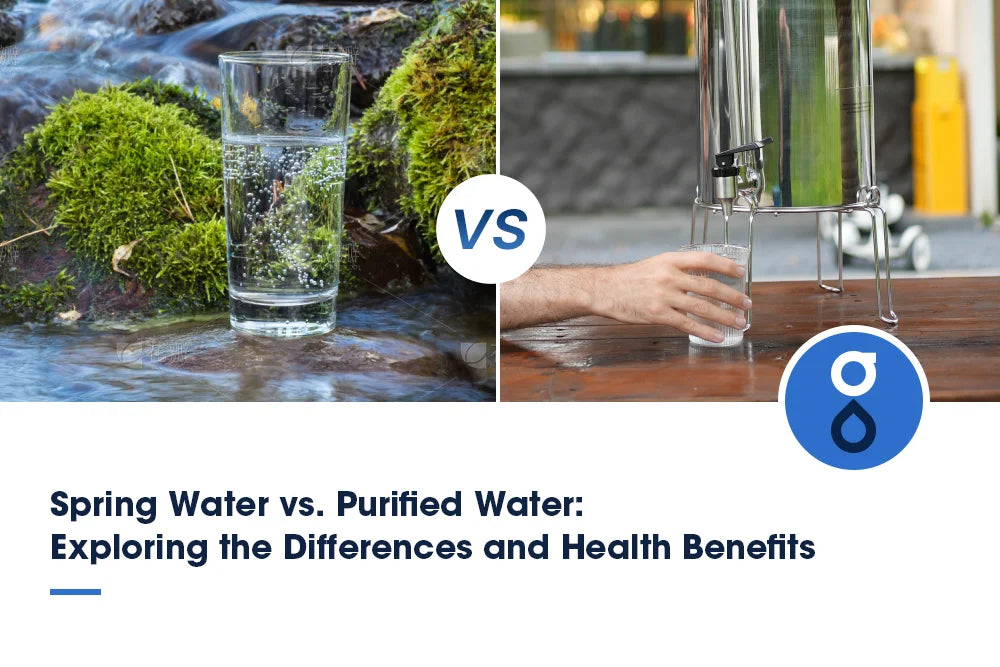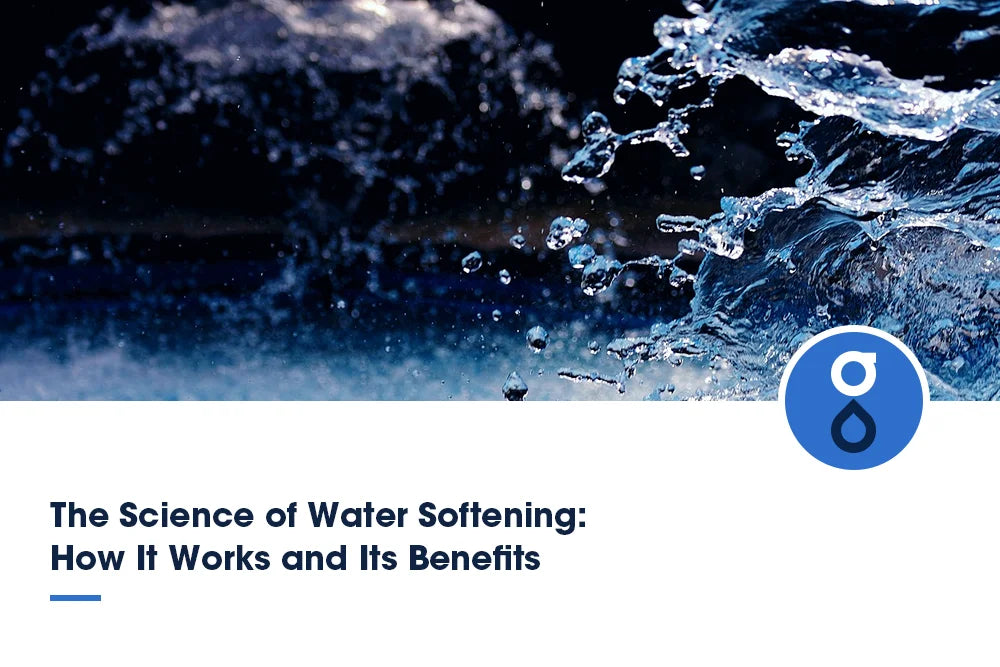Table of Contents:
Understanding the basics of spring water
How much you know about purified water
The health benefits of spring water and purified water
Potential disadvantages of spring water and purified water
Spring water vs. Purified water: revealing the key differences
How to choose the best option for your hydration needs
Conclusion
Spring water and purified water are popular options for choosing what to drink. While both serve the purpose of quenching your thirst, they have different characteristics and health benefits. In this article, we will explore the differences between spring water and purified water and delve into the potential health benefits of each.
Understanding the basics of spring water

When considering the basics of spring water, it's essential to understand its natural sourcing and mineral composition. Spring water originates from a natural source, typically underground aquifers that push the water to the surface, ensuring its purity. The mineral content of spring water varies depending on the geological formations it passes through, giving it a unique taste and potential health benefits.
The environmental impact of spring water collection is a concern, as excessive extraction can deplete the natural springs and harm local ecosystems. The bottling process for spring water involves collecting the water at the source, filtering it for any impurities, and then bottling it for distribution.
Due to its mineral content, spring water often has a distinct taste compared to purified water. Some prefer the natural taste of spring water, finding it refreshing and crisp compared to the sometimes flat taste of purified water.
How much you know about purified water

Regarding purified water, various filtration methods are used to remove impurities and ensure high-quality standards. These methods include reverse osmosis, distillation, carbon filtration, and UV treatment. Let's take a closer look at some key aspects related to purified water:

The health benefits of spring water and purified water

Explore the distinct health benefits of spring and purified water to understand how each choice can contribute to your overall well-being.
Spring water is known for its rich mineral content, offering essential nutrients like calcium, magnesium, and potassium that can benefit your overall health. These minerals support bodily functions and contribute to improved bone health and muscle function. On the other hand, while lacking in minerals, purified water provides excellent hydration benefits, helping to keep your body functioning optimally and aiding in digestion and circulation.
Regarding taste comparison, some people prefer spring water's natural, crisp taste, while others appreciate the neutral flavor of purified water. Regarding environmental impact, spring water may have higher environmental costs due to transportation and packaging, while purified water can be more sustainable if sourced locally.
Consider the source reliability when choosing between spring and purified water to ensure you consume a safe and clean product that meets quality standards.
Potential disadvantages of spring water and purified water
When it comes to environmental impact, bottled water, whether spring or purified, contributes to plastic waste and carbon emissions from production and transportation. While spring water naturally contains minerals beneficial for health, the mineral content can vary widely among brands and sources, potentially leading to inconsistencies in your consumption.
Conversely, purified water may lack essential minerals due to the filtration process, requiring additional mineral intake from other sources. Contaminant levels in both types of water can be a concern, with spring water potentially containing natural contaminants and purified water sometimes having traces of chemicals from the purification process.
Taste preferences play a significant role in choosing between the two, as some people prefer spring water's natural taste over purified water's neutral taste. Packaging concerns arise with both types, as the disposal of plastic bottles contributes to environmental pollution.
Spring water vs. Purified water: revealing the key differences

Distinguishing between spring water and purified water involves understanding their fundamental disparities. When comparing the two, several key factors come into play:
- Mineral content: Spring water naturally contains minerals like calcium, magnesium, and potassium due to its underground source. In contrast, purified water undergoes processes that may remove these minerals, resulting in a lower mineral content.
- Filtration process: Spring water typically undergoes minimal filtration, maintaining its natural composition. Purified water, on the other hand, goes through rigorous filtration methods like reverse osmosis or distillation to remove impurities.
- Source location: Spring water originates from underground sources like aquifers or springs, while purified water can come from various sources like tap water or municipal supplies.
Considering the mineral content, filtration process, and source location can help you differentiate between spring water and purified water. These distinctions also impact the environmental footprint and taste comparison of each type.
How to choose the best option for your hydration needs

To determine the best option for hydration reaction needs, assess your preference for mineral content and filtration processes between spring and purified water.
When comparing sources, consider whether you prefer water sourced directly from natural springs (spring water) or water undergoing extensive filtration processes (purified water). Spring water typically contains:
- Natural minerals.
- Providing potential health benefits, whereas purified water is stripped of impurities.
- Offering a clean and neutral taste.
Spring water has a higher nutrient content due to the minerals present, while purified water may lack these additional nutrients.
In terms of environmental impact, purified water often involves more processing and packaging, which can contribute to waste. Taste preferences play a significant role; some may enjoy the crispness of spring water, while others prefer the purity of purified water. Packaging options vary, with spring water often bottled at the source and purified water commonly found in various container types.
Conclusion
In conclusion, whether you prefer spring water's natural minerals or purified water purity, both offer hydration and health benefits. Consider your taste preferences, environmental concerns, and budget when choosing the best choice for your hydration needs. Remember to stay hydrated and enjoy the benefits of whichever water you choose!
















